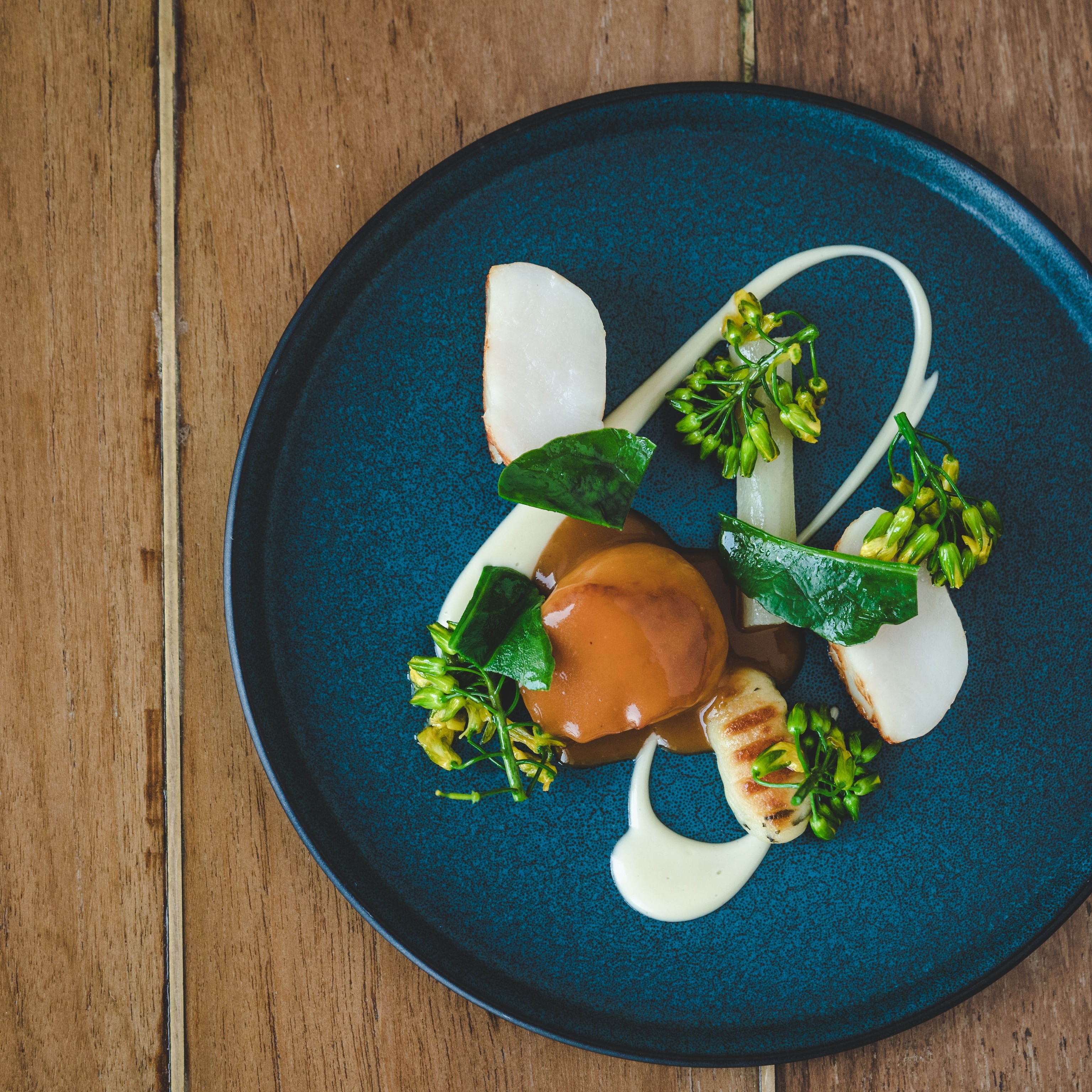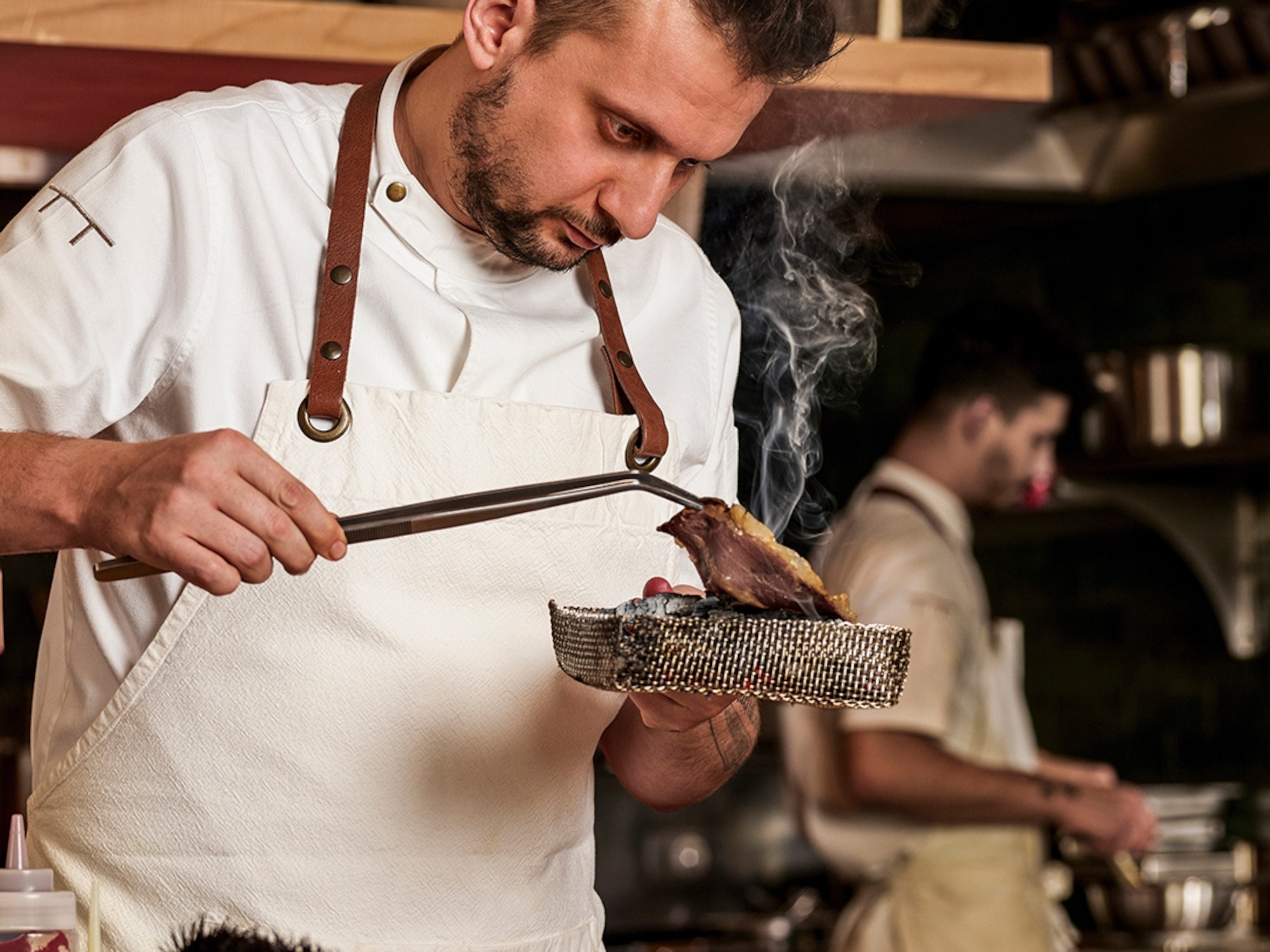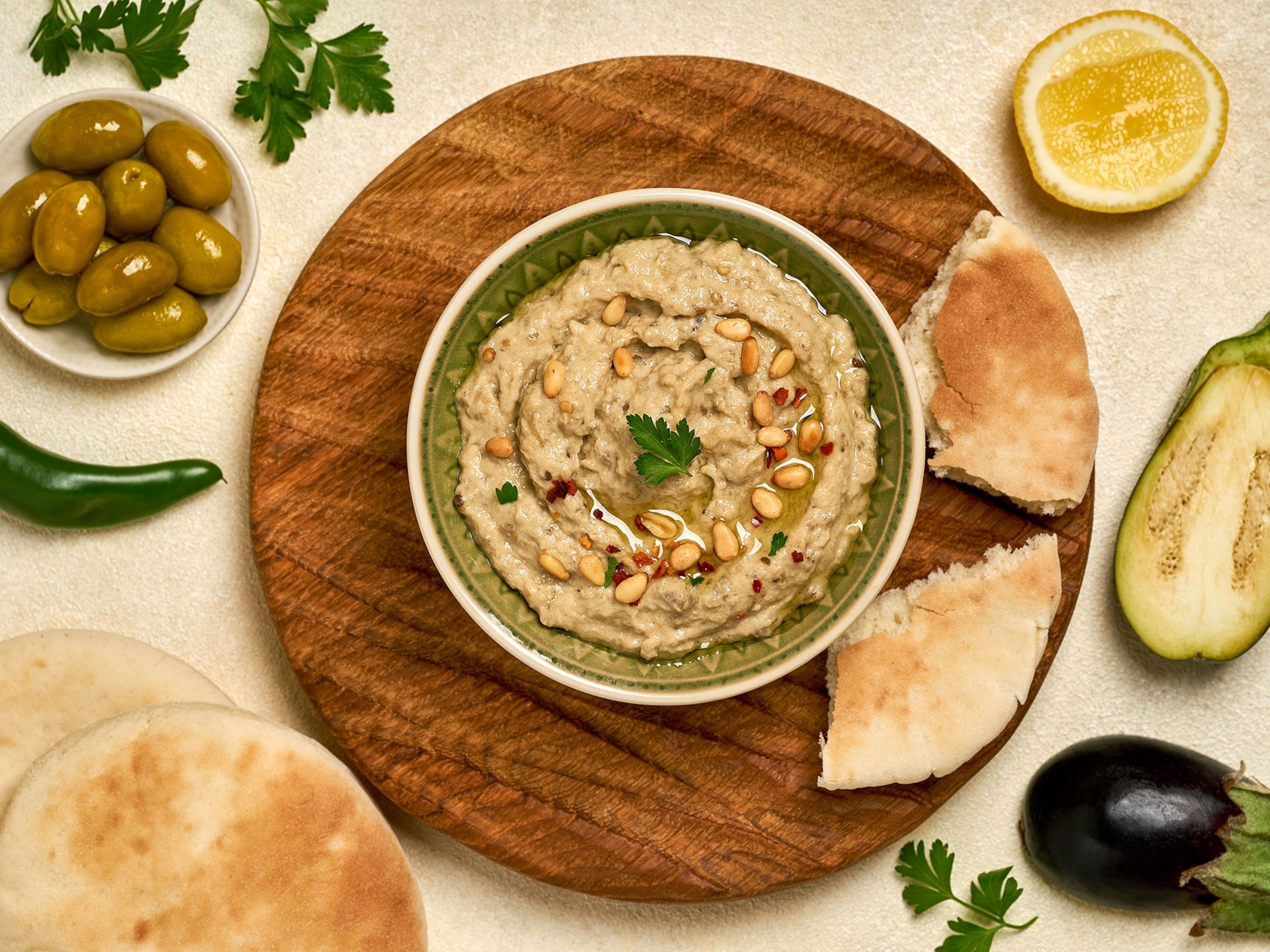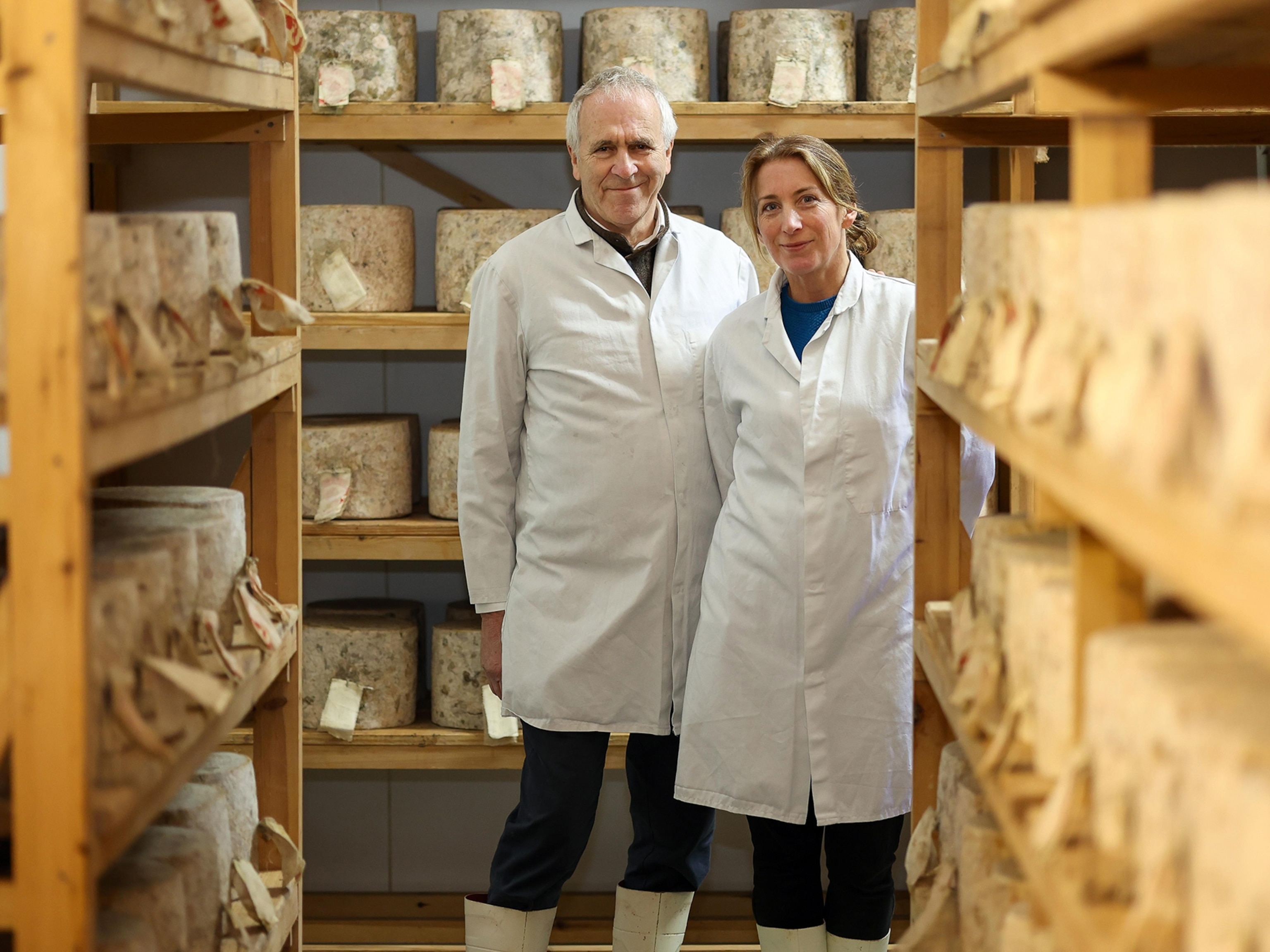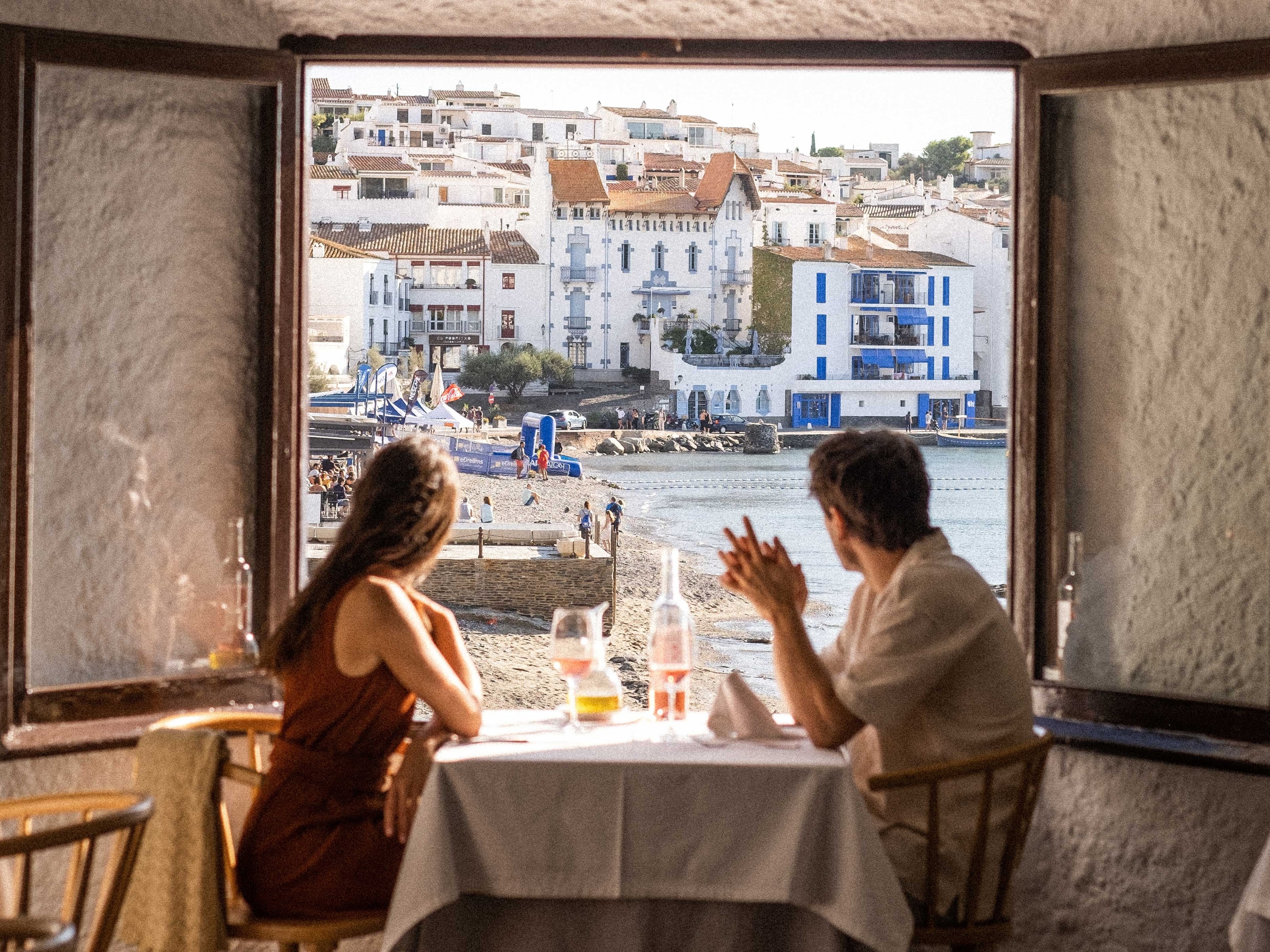At this Catalonia restaurant, low waste and humanitarianism go hand in hand
At his restaurant in Catalonia, chef Andrés Torres creates food with a minimal environmental impact — and funds humanitarian work in the process.
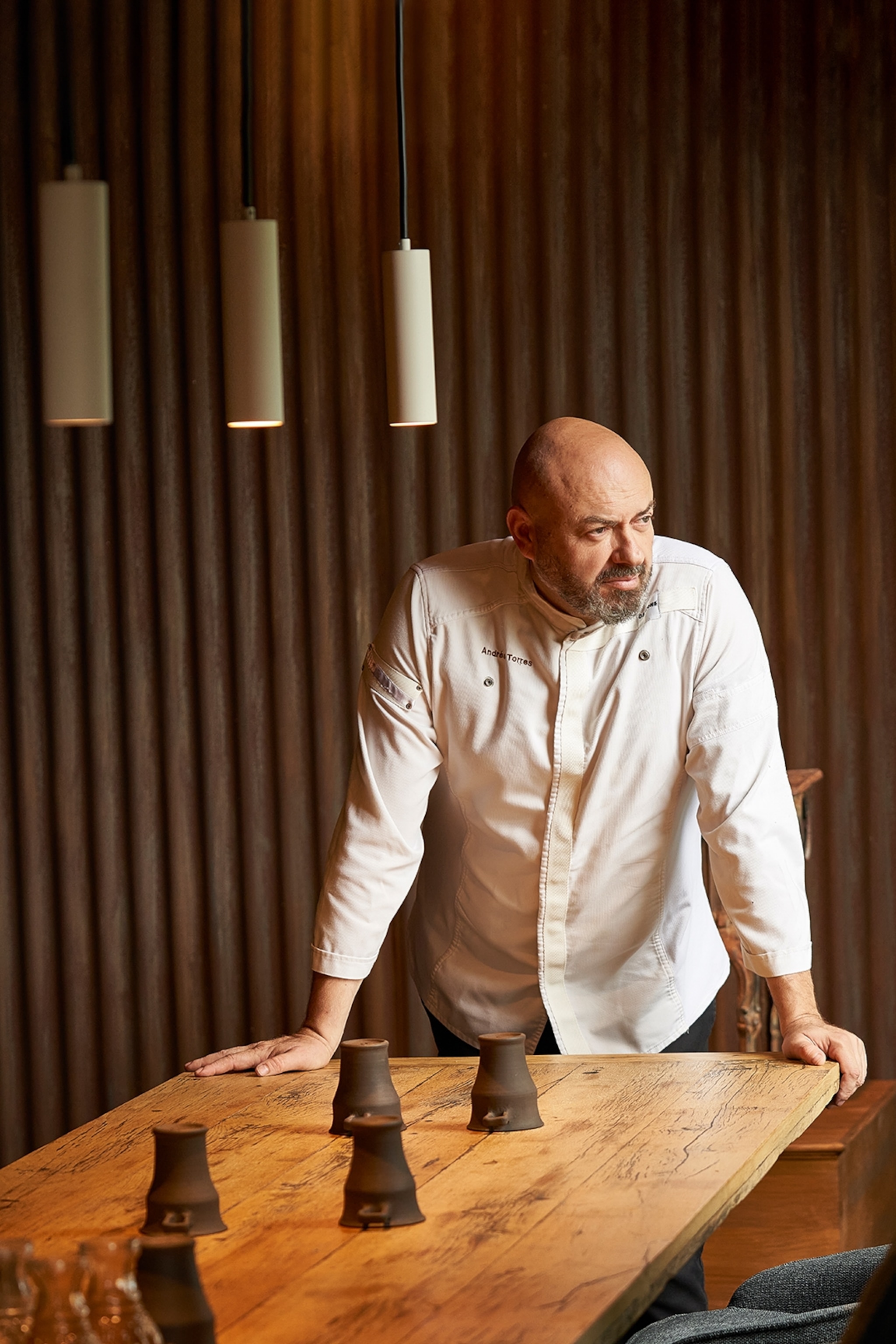
In the hills to the west of Barcelona, Casa Nova is a temple to the art of slow, soulful cooking. It’s the kind of place that, using only what is naturally abundant, relies on age-old methods and the particularities of a region’s terrain, climate and cultures.
In fact, the restaurant, a farmhouse in the fertile Penedès countryside famed for its white wines, claims to be 98% self-sufficient, with the remainder sourced from local producers. There are just seven staff who grow, cook, deliver and then explain all the food — no waiters — and a dining room with only six tables, Casa Nova offers an experience akin to visiting a friend’s farm — if that friend happened to be one of the world's most innovative chefs.
Andrés Torres, who worked as a war correspondent before becoming a chef, draws inspiration from the traditional and Indigenous communities he met during his many globetrotting expeditions, combining ancient processes with modern execution. There’s baked potato in a crust of herbs and a pool of spiced butter; egg yolk suffused with, and warmed by, injected chicken stock; mojama (filleted, salt-cured tuna — a dish typical of coastal Spain); and a lettuce sorbet with marinated and roasted lettuce leaves.
“I’ve created and improved my dishes based on the experiences I’ve had visiting communities around the world,” Torres says. He bakes bread in a wood-fired oven like the Quechua-speaking peoples of Peru, roasts coffee like Colombian tribes do and produces chocolate using methods he learnt in Guatemala.
Many of these techniques fit in with his commitment to sustainability; Torres has seen enough of the world to know how vital it is to preserve the planet’s resources, and has no time for empty gestures. “Sustainability is all the rage in restaurants all over the world,” he says. “But there’s a lot of bullshit out there. For me, sustainability is something very basic. It’s very simple.” To that end, Casa Nova has egg-laying hens, beehives to make lavender- and rosemary-infused honey, and a prodigious vegetable plot. Scraps from the kitchen are composted and used to fertilise the next season’s crops. A modest amount of timber is foraged for firewood, but most of the power comes from solar panels.
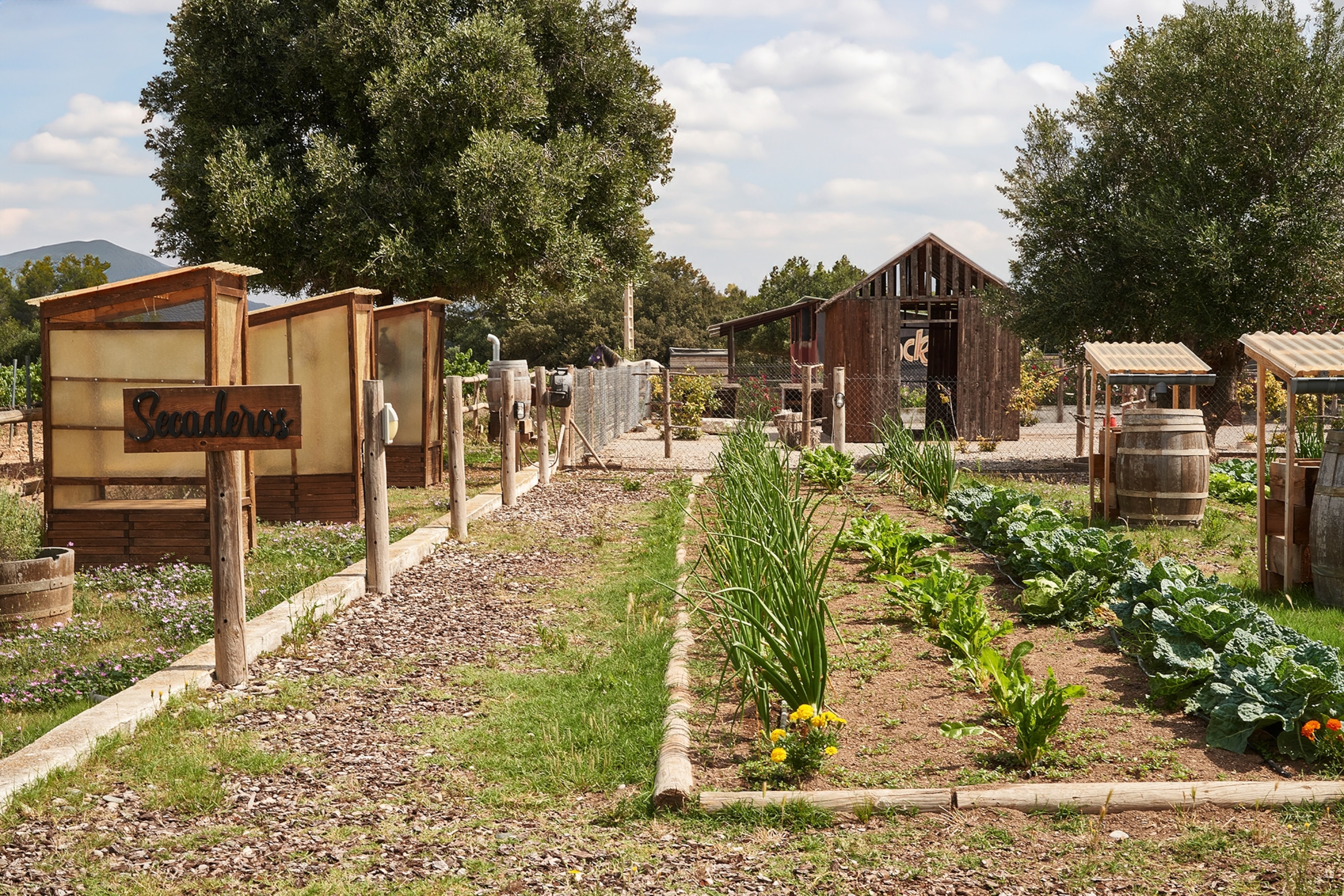
So far, admittedly, these are fairly standard eco practices. But Torres even produces his own salt, venturing out in a boat to collect Mediterranean seawater. He’s created a stone ‘insect hotel’ to support pest-eating bugs that protect crops without the need for pesticides. Rainwater is collected in barrels previously used to mature wine, and then used on the vegetables. Plates and other tableware are made by Torres’s wife. And instead of using dehydrators, as many high-end restaurants and industrial producers do, Torres built his own drying room and smokehouse. “The big factories cut tuna into slices and dry them with devices that control the temperature and humidity,” he says. “Not me — I put it under the sun and it dries naturally. It’s delicious.”
Self-taught Torres, who grew up in Barcelona during the 1970s, was interested from an early age in his mother’s hearty Spanish soul food (fried eggs with crispy potatoes and ham remains his favourite dish). The family would rarely go out to eat and so Torres would often watch her cook at home. “I was very curious,” he says. “I asked her many questions: What’s that ingredient? Why are you cooking it like this? I learned without going to university or to cooking schools. For me, university is the street.”
As a teenager, Torres was already cooking for his siblings and friends. But by the age of 17, he had begun working as a freelance war reporter and went on to cover conflicts in Libya, Afghanistan, Colombia, Iraq and the former Yugoslavia. He also spent time living in India, Cambodia and the Peruvian Andes. “What I learned most is humility and gratitude,” he says.
Torres’s next chapter arrived about 20 years ago, when he bought an old chicken farm surrounded by vineyards near Barcelona as a place to recuperate after his travels. He would cook from time to time for visiting friends and acquaintances — things like Peruvian chuños (freeze-dried potatoes) — and the reputation of his cooking spread by word of mouth until even strangers began knocking on his door asking to be fed. So, in 2015, Torres opened Casa Nova. And last year, another unexpected visitor came knocking: the Michelin Guide, which awarded Casa Nova a Green Star for sustainability.
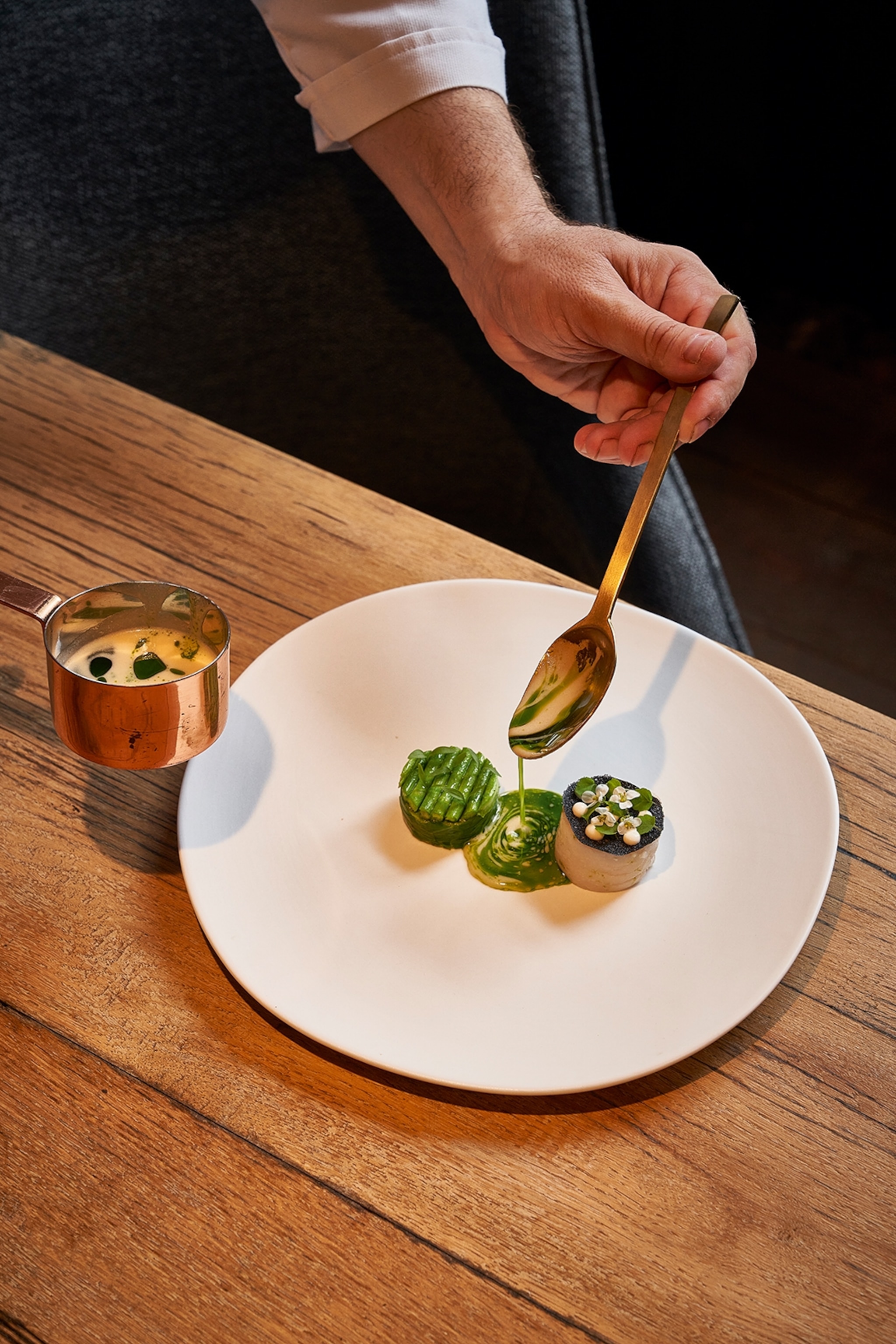
Torres has kept the intimate feel of those pre-restaurant meals with friends — diners are given a tour of the grounds, where his philosophy and processes are explained. Starters are served in a cosy room with a crackling fireplace, then there’s a visit to the kitchen to meet staff before eating in the dining room, which has a capacity of just 22. “It’s like you’re coming to my house to eat,” says Torres. “If I set up a party at my house with 200 diners, I’d not be able to greet them all. This is not a business. I want it to be a place of pilgrimage, where you eat and think about the world.”
Environmentalism is only part of the story he wants to tell. The restaurant helps fund Global Humanitaria, a nonprofit he set up in 1999 to support food security, education and children’s rights across the world and provide emergency relief for victims of conflict and natural disasters. Torres claims to have been the first chef to enter Ukraine after the war broke out, driving from Poland with 500 bags of groceries. He’s since returned 10 times.
At Casa Nova, Torres shares stories of his travels with his guests and encourages socially conscious discussions. “They think they’re going to eat — and obviously they are — but we have conversations about what happens every day: what happened to your neighbour, your father, what happened in the world,” he says. “And 90% of diners leave saying ‘Well, what can I do? Can I make a donation?’”
In June, Torres won the prestigious Basque Culinary World Prize — often called the ‘Nobel Prize of gastronomy’ — when he was acknowledged for his combined work with Casa Nova and Global Humanitaria.
Yet, for all this, Torres’s view of food remains — like his approach to sustainability — quite simple. “Food is first of all nourishment, it is sensations in sight, in smell, in taste, even in hearing,” he says. “When there’s a sauce that you love, you pick up the spoon, you start to scrape the plate — that sound, that’s glory.”
To subscribe to National Geographic Traveller (UK) magazine click here. (Available in select countries only).
